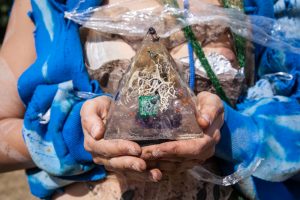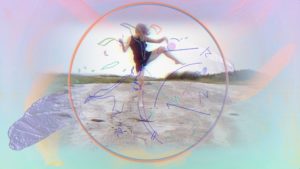“We are organising the Unite Against Dividers weekend because we feel the responses from the art world have so far been too binary, tokenistic and quiet,” say Keep it Complex -Make It Clear, who are presenting Unite Against Dividers, an activation weekend for the arts, at multiple venues across London and the UK from January 13 to the 15.
Keep It Complex – Make It Clear is a collective of art workers who want to shake up the definition of political art and see themselves as a tool to get involved in everyday politics, like, as they call it, “a recipe book, a song score or an angry note somebody left on the fridge.” The collective, who define themselves as a loose group of people who work in arts, formed out of the EU-UK.info campaign, are tackling the notion that ‘directness’ does not equal community art, and it is time to divest from the old structures that dictate how we experience and value art.
The weekend will kick off with a roundtable dinner at London’s Res. space hosting over 30 politicians, activists and artists including Heather Phillipson, Taylor Le Melle and Legacy Russell, among others. All are welcome to join from 20:30 onwards for drinks. Check out the weekend schedule to choose from a huge number of workshops, talks, performances and reading groups including artist Jenny Moore‘s ‘We Want our Bodies Back’ singing workshop exploring the voice as a tool for protest, as well as a collective zin-making workshop ‘Manifestos for Surviving in the Arts’ run by Collective Creativity (Evan Ifekoya, Raisa Kabir, Rudy Loewe and Raju Rage).
We spoke with three of the coordinators Kathrin Böhm, Rosalie Schweiker and Divya Osbon about moving beyond the exhibition space, putting pressure on the art world’s resource distributors and re-imagining contemporary art’s role in politics.
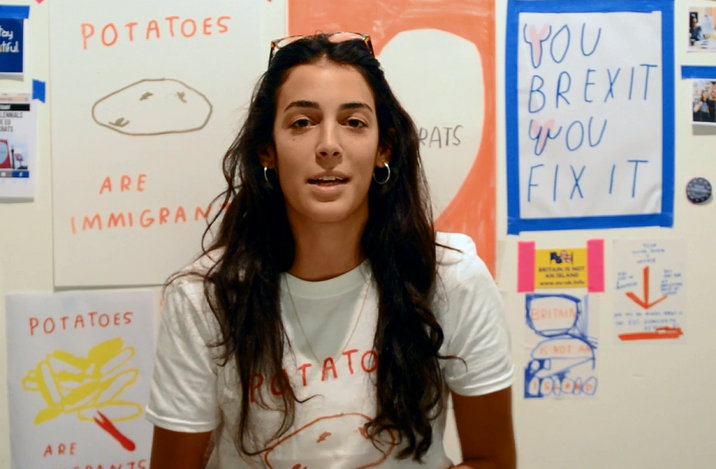
** I love the name Keep it Complex! It brings it back to the importance and process of a continual (un)learning.
Divya Osbon: This is probably very obvious to say, but I view it as a straight-up response to and a good reminder of the maddeningly reductive politics around the referendum. But also useful as an anti-fascist response more generally. I’m thinking about intercultural exchange and past conversations about cultural relativism, and there’s something about this that just can’t be reduced to black and white, it has to remain complicated and evolve within that state, and that’s okay.
Rosalie Schweiker: It comes more out of a need rather than a want. As a non-Brit the whole referendum was pretty traumatic for me, especially seeing how useless and irrelevant the arts were and how little political education there is in Britain. People didn’t know what to do (apart from posting on social media) and so I guess what we did came as a very direct and pragmatic response. The idea for the weekend kind of came out of a similar context, because we just wanted to have people together in a space and create some kind of energy to take this forward. Also to put pressure on the big art institutions, the people with money and power, to take a stand and not pretend that everything is going to be fine.
** Tell us a bit about the mouse logo.
RS: Divya organised a weekend at the floating cinema, and she screened Born In Flames on the boat. We were sitting outside and it was amazing to see this film so huge and in public. When I saw the bit with Flo Kennedy and the mouse quote, I just realised that that’s what we need to do – be 500 mice because they are harder to shoot than 1 lion. It has become a really useful metaphor also to think about the legacy. Because I don’t want to end up with one huge homogeneous organisation. I don’t think there should be professional artists or activists. If we were all able to do a bit instead of outsourcing it, we’d create a more equal society.
Kathrin Böhm: It also reflects that whatever we do is multi-authored, collaborative, done in a group that can grow and shrink. We’re not pretending to be a movement, but we know we are part of a big group, a large group of people who don’t want racist and nationalistic politics. DO: The other thing it taps into for me then is this idea that having multiple agendas within this weekend is a positive. Something we’ve talked about before, in other groups I organise with, is not being afraid of conflict or uncomfortable conversations (i.e. being ‘called out’ or ‘in’…) because that’s where we learn and evolve and hopefully change aspects of our culture that are oppressive.
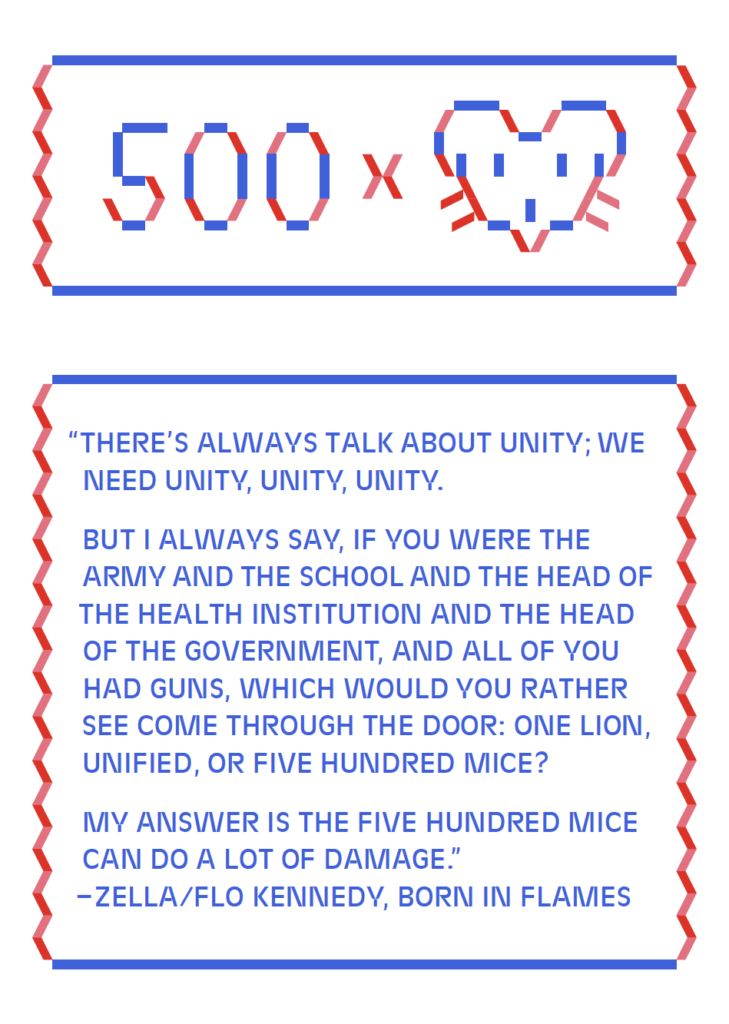
** What do you want to achieve by putting on this weekend?
RS: I think I’d like to push two ideas with the weekend: Firstly, that as artists, or designers, or whatever, we should stop making art for a while and see how we can use our skills differently. The second thing is I’d like to push is that there is no such thing as political art. All art is political, because it’s about how you give and withhold your labour. So we need to get away from this idea that political art is something serious and needs to look a certain way or use a certain language.
There’s this fetishisation of exhaustion in art and activism, almost like if you’re not nearly dead then you’re doing something wrong. And with the weekend we want to show that activism might also mean having a good time, taking care of yourself, implementing small everyday changes. We want to put some new ideas out there — like, why do arts institutions always do talks and panel discussions? What other forms of communication or community building could we try?
KB: The whole experience [of the EU referendum] made it apparent to me that I have to become clearer with what I’m trying to do as an artist. I’m not here to be simply social and communal. I do the work I do to practice a reality which I value, which is embedded in the everyday of existing public realms and therefore society.
** Yeah, contemporary culture is increasingly intertwined with politics, and many artists are blurring the line between activism and their practice, yet we continue to think of politics as separated from, or removed in some way from our daily lives.
KB: When we did a mail-out to our Company Drinks mailing list in Barking and Dagenham to ask everyone who supports and appreciates our collaborative and cross-cultural way of working to support the Remain Vote, we got some of our regulars to say that they don’t want the project to be political. They wanted it to be a nice community project. I want it to be a nice community project, too, but I also have to be clear that it produces and represents values which are feminist, co-operative and ecological. That’s where I have to become clearer as an artist.
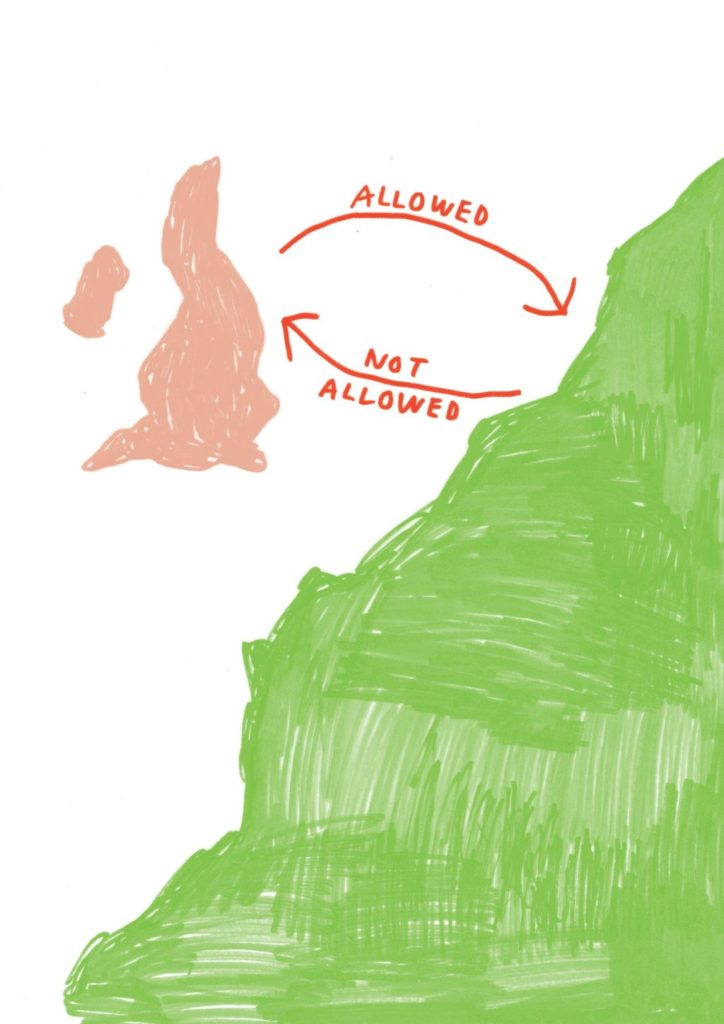
** The webpage is very instructional and full of resources, which feels refreshing and accessible.
RS: Well, I think we were really overwhelmed with the complexity of politics and realised that there’s no simple answers to all of this, so we thought it might be good to just create the website as a starting point, to collect some ideas. I think lots of people don’t get engaged with politics because it seems such a huge thing — or like with climate change, we all know we’re fucked but we don’t take any steps to solve this, we just retreat back into some kind of melancholia and anxiety.
** Do you have plans to continue and reincarnate after UAD?
RS: I don’t know exactly what we will do after the weekend, but I think in the spirit of the 500 mice, we will have found out who we want to work with and then go off and build smaller teams, push things in smaller groups, because otherwise it also gets to exhausting.
KB: Keep it Complex will continue, and as Rosalie said, the weekend is to incubate and grow initiatives and action. For me it’s also to gain and grow confidence in being clear with my values and ambitions in order to carry them back into the work I do as an artist in communities.
DO: I was daydreaming the other day that if things became a lot worse in the UK, I would start my own version of Pussy Riot.**
Unite Against Dividers is on at venues across London and the UK, from January 13 to January 15.
